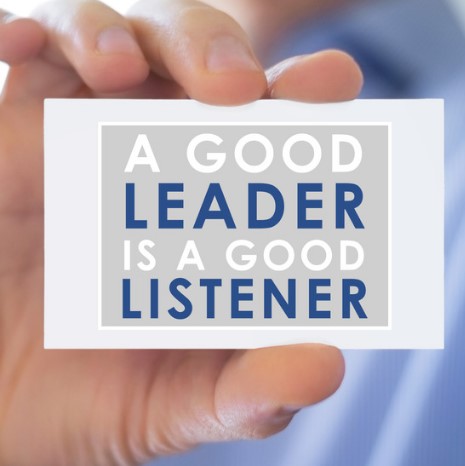
How to improve and develop your concentration when working or studying
Concentration and focus are not the same. Here is the difference: Being focused implies that we concentrate exclusively on something, excluding everything else. Attention, on the other hand, is everything that happens around us, every detail, everything that happens; in other words, nothing escapes us. If the first thing that worries you, you will discover today how to develop your concentration effectively.
Therefore, if you need concentration to study, work or perform a task that, due to its degree of difficulty, requires your maximum concentration or if you simply want to exercise it, you will find here some 100% practical tips that will undoubtedly be useful.
Start by setting priorities
To develop your concentration, when you start your day, determine what you will do, when you will do it, what you will leave aside for another time, what you will do first and what you will do next. Set clear goals that are as specific and realistic as possible. If it is necessary and you feel more comfortable, write down what you have decided.
Organise your materials
Order all the materials you are going to use and leave everything at your fingertips. When studying, you can use one or more techniques to correct knowledge such as: underlining, concept maps, notes, summaries, highlighting important text fragments in different colours. Finally, use the technique that suits you best and is most useful.
Eliminate anything that might distract you
Turn off the mobile phone, TV and radio (if it disturbs you) and choose a comfortable place to be. If you live in a very noisy environment, use earplugs or headphones to reduce noise. If any sudden noise distracts you momentarily, try to neutralise it and refocus.
On the contrary, some people find that music accompanies them and helps them to concentrate more. If this is the case for you, study or do your homework while listening to your favourite music.
Take a break
Take a break or change material from time to time. It has been proven that after 90 minutes, concentration is lost, so it is better to take a break and let yourself be distracted. listen to music, eat an apple, drink tea, etc. and then go back to your study or work place. This way you can develop your concentration much better.
Control your space
Keep your study or work space clean and tidy. This detail, at first sight so superficial, is extremely important. Try to have everything you need at hand and always in the same place, so that you can find it easily and without wasting time.
Divide the work into several parts
When the work you have to do is very complex, it is best to divide it into several parts, so that you can meet them in turn. This will prevent anxiety from taking over and you will see that you complete each step to the end. It is also useful to set deadlines for these steps. They should be realistic so as not to create false expectations.
Once you have completed a task that has taken a lot of effort, reward yourself with something you enjoy, it can be a break, watching TV, having a coffee, talking on the phone or going for a walk; you choose what you like best.
Sleep what you need
Sleep the number of hours your body needs. This is important because getting enough rest will help you perform better if you have to study or work. Only then can you develop your concentration properly.
Worry!
Don't let worries get to you. This is another great distraction. There are many techniques you can use to get rid of them (meditation, breathing, relaxation) and face your study or task without being disturbed. Use the one that gives you the best results.
What is your most productive time?
Choose the time of day when you feel most productive, it could be morning, afternoon or evening. This is very personal. Try to find out what time is your best time.
What are you waiting for to implement these tips? As you can see, they are very simple, but when you apply them, you will find that your concentration, whether at work or in the studio, increases and, therefore, your performance. Successes!
How to increase your concentration time?
- Start by timing how long you can stay focused on a task without struggling: start the timer when you start working, and stop it as soon as you feel your concentration waning. This can be only after 40 minutes, or 30', or only 20'... Don't cheat: the aim is to start from your current ability to concentrate and improve it.
- Take this time into account when organising your work: never study for longer than (for example) 20 minutes at a time. After 20', take a short break of 3', then voluntarily go back to work for another 20'.
- After several days, this method of working should already bear fruit: you are more efficient because you are better concentrated, you waste less time, you are more energetic because you learn to devote yourself 100% to the study during your work periods. You know how to start at full speed, and stop, restart and stop.
- After at least a month, you can try to increase your "concentration time" by 5 minutes: from 20 to 25 minutes for example, or from 30 to 35'. You have strengthened your concentration.
Exercises to mobilise immediate attention
- Observe an object for 30 seconds, then try to picture it in your mind with your eyes closed as clearly as possible
- Do the same with the face of someone you know well: try to picture it in your mind as accurately as possible.
- Turn down the radio very slowly and try to listen to it until you hear nothing more. You can also try to do this with background noise.
Headaches, fatigue: the enemies of concentration
Normally, all the advice given above should make your work sessions less tiring and help you avoid headaches.
If you still get a headache quickly, there are other purely physical causes to consider:
- Sleep: are you getting enough sleep? Lack of sleep impairs concentration, as you can see after a shorter night.
- Diet: the brain consumes a lot of energy. To fuel it well, eat a very balanced diet, not only during revision but also throughout the year. Avoid systematic sandwiches at lunchtime and dinners reduced to a bowl of pasta. A full meal in a restaurant is not necessarily a waste of time. Also remember to drink enough: we need 1.5 litres of water a day!
- Consumption of stimulants or drugs: coffee stimulates wakefulness but in excess, it also increases anxiety. Cann**abis is notorious for its deleterious effects on concentration and memory. The same applies to excessive alcohol consumption.
- Physical fitness and health: you are not just a brain! Do you do enough sport, do you take the time to walk, to breathe (and to air your room)? Think also about glasses (eyesight problems give you a headache), dental care, etc.





